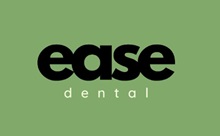DIY dental care can be a good way to maintain oral hygiene between professional visits, but it’s important to do it right to avoid any potential issues. Here are some basic tips for effective at-home dental care:
Brushing
- Choose the Right Toothbrush: Use a soft-bristled toothbrush to avoid damaging your gums and enamel.
- Use Fluoride Toothpaste: Fluoride helps strengthen tooth enamel and prevent cavities.
- Brush Properly: Brush for at least two minutes, twice a day. Use a gentle, circular motion and make sure to clean all surfaces of your teeth, including the chewing surfaces and the back of your teeth.
- Don’t Overbrush: Brushing too hard can damage your gums and enamel.
Flossing
- Daily Flossing: Floss at least once a day to remove plaque and food particles from between your teeth and below the gum line.
- Proper Technique: Use a gentle sawing motion and curve the floss around each tooth in a C shape. Be careful not to snap the floss into your gums.
Mouthwash
- Use Mouthwash: A fluoride or antibacterial mouthwash can help reduce plaque, prevent gum disease, and freshen your breath.
- Follow Instructions: Rinse for the recommended time and don’t eat or drink immediately afterward.
Diet and Hydration
- Healthy Diet: Limit sugary and acidic foods and drinks that can contribute to tooth decay and erosion.
- Stay Hydrated: Drink plenty of water to help rinse away food particles and keep your mouth hydrated.
Dental Tools
- Interdental Brushes: These can be an alternative to flossing for cleaning between teeth, especially if you have larger gaps.
- Tongue Scrapers: These can help reduce bacteria and bad breath by cleaning your tongue.
Regular Checkups
Even if you’re diligent about your at-home care, regular dental checkups are essential. Dentists can identify issues you might miss and provide professional cleanings and treatments.
Be cautious with DIY remedies you might find online, such as using baking soda or hydrogen
